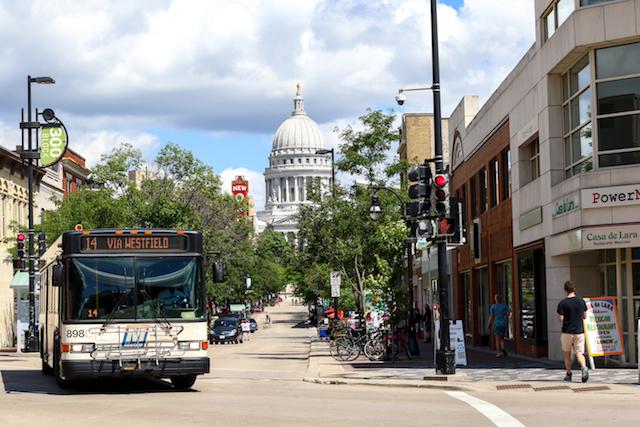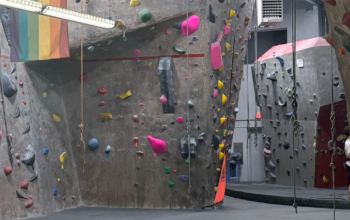Last week Madison Metro Transit and its oversight committee the Transportation Commission held a public hearing on what has become an annual ritual of vetting a slew of service changes that do not involve a massive infusion of additional money.

The aim is to have largely cost-neutral changes in place for the start of the next academic year, and the hearing in late April can be considered the public kick-off to the review process. Madison Metro had previously compiled the proposed service changes into a file that can be viewed and here. The hearing itself was captured both on video and audio by the City of Madison's media site.
The Commission will deliberate on the proposals at its May 22, 2019 meeting. In the meantime, written comments can be sent to Metro Transit Public Hearing Feedback, 1245 E. Washington Ave., Suite 201, Madison WI 53703 or by emailing mymetrobus@cityofmadison.com.
Proposed changes range from minor scheduling tweaks, eliminating existing bus stops, drastically revamping the bus routes, and adding service on one route by eliminating another route. The idea is to increase overall efficiency, which is often assessed in terms of number of riders, even as the system is constrained by limited resources.
The outcome of Madison Metro’s policies are usually different from their intended effect. The best way to increase ridership is to actually increase bus service. This fact is not lost policymakers in Madison who must pretend otherwise. But without an increase in resources, what are they supposed to do?
Proposing frequent changes actually aids and abets the downward spiral in Madison's transit service that has been going on for years. How can someone who relies on public transit lease an apartment for a year, let alone re-locate a business or purchase a home near a bus line, when the nearby bus stop may be eliminated and/or the bus routed away at any time?
By making significant changes so frequently, Madison Metro is telling people that they cannot and should not depend on bus service and, if they are able, should purchase and use a bicycle or automobile instead. That message may not be the consciously-admitted, but is indeed the one being told implicitly.
Since most of the proposed changes to bus service have to be cost neutral, the expectation often is that riders will endure more inconvenience in exchange for greater coverage elsewhere: "Add service here? Then cut service there." But the reality is that service overall becomes even less attractive compared to such alternatives as walking, biking, ride-sharing or car ownership. The reality is that the ratio of "choice" to "captive" riders continues to decline. Equity increases, not because the lot of anyone is improved, but because those who are not captive no longer ride the bus.
For instance, instead of simply eliminating bus stops, as is recommended for the stops on East Washington Ave. at Dickinson St., we need to invest in stops and have more of them. The idea that bus stops should be a quarter mile apart everywhere is a cruel joke written into the latest Transit Development Plan by a young able-bodied engineer who knows nothing about topography, slippery slopes or the use of any particular stop—he only seems to rely on what his ruler on a flat map tells him.
But having one less stop to maintain and bring up to ADA-compliance standard saves money. Should we expect Madison Metro to oppose improving its bottom line, even when that is at the expense of bus riders?
Another example of a latest proposal is to increase access to a commuter bus route in Near West neighborhoods at the expense of reducing the access of those potential commuters to employment centers downtown where they need to go. Think about it. Even if a bus stop is more accessible to your residence, would you ride a bus that would NOT take you where you needed to go, especially when another bus (the #6 instead of the #11) would?
Madison Metro also has proposed a new route to and from Sun Prairie. Instead of being an addition however, the run re-purposes buses that had been used for middle school routes. Those rroutes are being eliminated because of a state law forcing guns to be allowed on public buses while the School District will not tolerate guns. So maybe a net gain for Sun Prairie, but a definite loss for the Madison Metropolitan School District.
Another proposal is to increase accessibility to the new Pinney Library and to intercity buses but at the expense of eliminating two other bus routes and drastically restructuring the third.
The only actual added service in the whole scheme appears to be for Route 84. There would be six runs instead of the current five.
Done correctly, service changes that do actually involve increased efficiencies or additional service of one type or another are welcome. Otherwise, the less disruption, the better. People can depend on, and plan around, the situation. But much of what has become an annual ritual of "proposed service changes " are actually, in the words of one testifier, little other than "robbing Peter to pay Paul."




